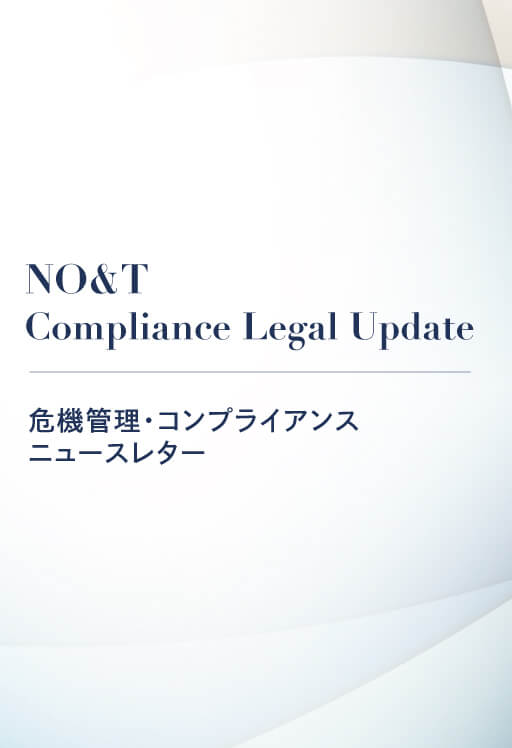
NO&T Compliance Legal Update
This article is also available in Japanese.
Since 1 January 2023, companies that have their administrative seat or an establishment with, generally, at least three thousand employees in Germany are subject to the so-called Supply Chain Due Diligence Act (Lieferkettensorgfaltspflichtengesetz, “LkSG”). The purpose of the LkSG is to prevent violations of human rights and environmental protections along the supply chain of these companies, by imposing on them certain obligations to ensure that they themselves do not commit such violations and to exert pressure on suppliers to comply with human rights and environmental standards.
As from 1 January 2024, the abovementioned threshold will decrease to one thousand employees, meaning that many multinational companies with manufacturing, administrative or similar facilities in Germany will become subject to the LkSG’s provisions. In addition, the EU Corporate Sustainability Due Diligence Directive which is currently under discussion will likely be adopted soon and will force even more companies to adopt corporate due diligence measures in the medium term.
This article will therefore give an overview of the scope and the most pertinent requirements of the LkSG, highlighting the most relevant aspects for companies to achieve compliance.
The prohibitions the LkSG is designed to ensure that human rights, workers’ rights and the environment as protected under international conventions not be violated. In particular, they include:
While the LkSG does not require companies to actually be successful in preventing any and all violations of these prohibitions by suppliers, it does require them to exert “appropriate” efforts. What specifically is considered “appropriate” depends on various factors such as the size of the company, the sector and the countries in which it is active, and in particular the degree of immediacy/intermediation between the company and the supplier.
When determining the applicable obligations and the degree of due diligence required, (at least) three levels of the supply chain can be distinguished:
As detailed below, the obligations imposed by the LkSG differ according to the tiers. However, the law requires a substantial rather than just a formal analysis. Bad faith contractual arrangements that aim at circumventing the LkSG by artificially constructing more indirect contractual relationships, thereby rendering all suppliers (only) intermediate/Tier 2 suppliers and limiting LkSG due diligence obligations will be disregarded (§ 5(1), 7(1) LkSG).
On the Tier 0 level, the company is subject to the strictest obligations. The LkSG assumes that within its own sphere of influence, the company has the most control and must therefore bear the most responsibility. If, on the other hand, (potential) violations of human rights or environmental protections are located at the far end of the supply chain, the company has less control, which is taken into account in the strictness of the statutory obligations. The obligations, which are therefore somewhat staggered depending on the levels/Tiers described above, can be structured into separate categories:
Risk management measures must be implemented in all relevant business procedures (§ 4 LkSG). In particular, responsibility and accountability for risk management must be clearly defined, including by the designation of a human rights officer.
Consequently, corporate regulations may need to be reviewed and amended to implement new reporting obligations and allow the human rights officer to adequately perform their role.
The company must conduct a risk analysis to determine the type and degree of risk of human rights and environmental violations that exist in its operations and supply chain (§ 5 LkSG). This analysis must be conducted at least annually and generally includes at least a mapping of all relevant supply relationships, a risk determination on the basis of both abstract and concrete criteria (abstract: countries, sectors etc.; concrete: individual supplier reputation, due diligence result and performance). The results of the analysis must be communicated to the relevant decision-makers, e.g. the board of management or head of procurement.
Moreover, the company must implement a complaint procedure (Beschwerdeverfahren – § 8 LkSG). Similar to a whistleblowing system as a system for employees, the complaint procedure must enable internal and external complainants to bring risks and violations in connection with human rights and environmental protections to the attention of the company. The company must publish the basic rules governing the complaint procedure and ensure that the procedure is easily accessible. Complaints must be treated confidentially and good faith complainants must be protected from retaliation. At least annually, the company must audit the effectiveness of its complaint procedure.
Companies with pre-existing whistleblowing systems should take particular care to seamlessly integrate the existing system with the new complaint procedure.
The LkSG requires companies to take various risk prevention and mitigation measures (§ 6 LkSG). As a baseline, company top management must issue a basic strategy regarding human rights compliance.
While companies can take their pre-existing Codes of Conduct as a foundation for the LkSG compliance strategy, the latter will require a lot more detail. In particular, it should include a description of the compliance mechanisms as required under the LkSG, the human rights and environmental risks relevant to the company, and management`s expectations regarding the behavior of employees and suppliers in this regard.
Moreover, the company must take measures to implement these expectations, in particular by obtaining contractual warranties, conducting trainings and including auditing and control mechanisms in supply agreements. Employment agreements may also need to be amended.
Once the company recognizes that a violation of human rights or environmental protections in its own business or at controlled subsidiaries as described above, or its immediate supply chain has occurred or is imminent, the company must take measures without undue delay to prevent, stop or mitigate the extent of the violation (§ 7 LkSG).
In its own business or at controlled subsidiaries as described above, the measure must stop the violation, unless it occurs outside of Germany or at subsidiaries, in which case the measures must stop the violation only “as a rule”, i.e. in typical circumstances, with possible exceptions for atypical cases.
Where the violation occurs or is threatened to occur at an immediate supplier, i.e. on Tier 1, and it cannot be ended immediately, the company must create a remediation concept which includes a timeline. As part of such a concept, the company and the supplier can for example create and implement an action plan to end or minimize the violation, come together in industry groups to exert more pressure on the actor behind the violation (e.g., a third party, intermediate supplier) or temporarily suspend the business relationship. The termination or complete discontinuation of the business relationship with the supplier is only mandatory if the violation is particularly grave, the implementation of a remediation concept does not actually result in remediation, and there are no less drastic measures available, also taking into account potential measures to increase the company`s influence over the situation, while details and/or examples of such measures are not clearly defined or provided.
With regard to Tier 2, the risk analysis, prevention and mitigation measures are only triggered if the company knows of factual indications of a human rights or environmental violation at such intermediate supplier, i.e., the obligations apply (only) in relation to specific events instead of continuously.
In any case, the effectiveness of risk prevention and mitigation measures must be tested at least annually.
The company must document its compliance with its due diligence obligations and retain this documentation for at least seven years (§ 10 LkSG). Moreover, it has to publish an annual report on its compliance measures on its website.
Enforcement of the LkSG is the responsibility of the German Federal Office for Economy and Export Control (Bundesamt für Wirtschaft und Ausfuhrkontrolle, “BAFA”). The BAFA is authorized to conduct investigations on its own initiative when it perceives a risk of violations against the prohibitions mentioned above. Compared to other supervisory authorities, the BAFA currently makes a very active, hands-on impression, approaching a number of companies directly and enquiring after their LkSG compliance.
The BAFA can review the human rights reports submitted to it, order the surrender of documents and other information and conduct raids. When compliance measures are insufficient, the BAFA can also order the company to take specific measures and threaten monetary penalties. In case of actual – even negligent – violations, it can also impose fines up to EUR 800,000 or 2% of annual global turnover of all group entities acting as an “economic unit”. Especially for large company groups, this can lead to very high fines.
In addition, companies can also be excluded from participating in public tenders for up to three years if a grave violation has officially been determined (typically requiring a fine of at least EUR 175,000).
Violations of the LkSG may also trigger liability for civil claims. Consumers may for example argue that manufacturing in violation of the LkSG, including insufficient reporting, qualifies as a defect of the final product. Competitors may also raise claims for injunctive relief or damages on the basis that violations of the LkSG lead to unfair competitive advantages. Finally, third parties (e.g., manufacturing staff whose human rights were violated or inhabitants of polluted environments) may raise claims for injunctive relief or damages under tort law. Considering that Germany very recently implemented the Representative Actions Directive (Directive (EU) 2020/1828), thereby bringing the concept of “class actions” to Germany, such claims may be litigated more often in the future. In addition, German unions and NGOs can raise claims on behalf of persons claiming a violation of their vital rights (§ 11 LkSG). Some examples of recent movements based on LkSG are as follows.
Even if individuals do not choose to litigate their claims, NGOs may lodge a complaint with the BAFA, which can then take action to address the complaint if it is justified.
Investigations and litigation in the area of human rights and the environment can of course also have a significant impact on a company`s reputation.
In summary, German and foreign companies with at least 1,000 employees in Germany will face increased scrutiny on their human rights and environmental protection measures as from 1 January 2024.
Companies with a significant business presence in Germany should therefore analyze if they are at risk of being subject to the LkSG and therefore need to comply with the obligations set out above.
Companies that are subject to the LkSG will need to review and likely amend their compliance and risk management measures. The practically most important points are:
The bigger the company and the more complex its supply relationships, the more time and effort these measures are likely to take. So companies are well advised not to wait too long before starting implementation.
*1
The agreement between brands and trade unions, established after the incident that the Rana Plaza factory building in Bangladesh collapsed in April 2013, killing 1,133 people and critically injuring thousands more.
This newsletter is given as general information for reference purposes only and therefore does not constitute our firm’s legal advice. Any opinion stated in this newsletter is a personal view of the author(s) and not our firm’s official view. For any specific matter or legal issue, please do not rely on this newsletter but make sure to consult a legal adviser. We would be delighted to answer your questions, if any.
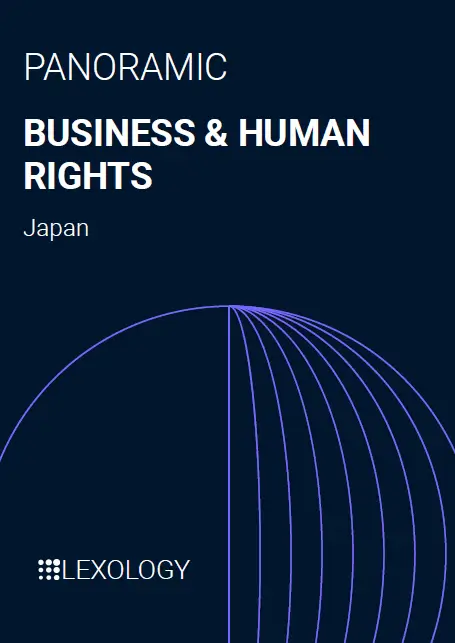

(April 2025)
Ayumi Fukuhara, Momoko Yamashita, Nina Newcombe (Co-author)
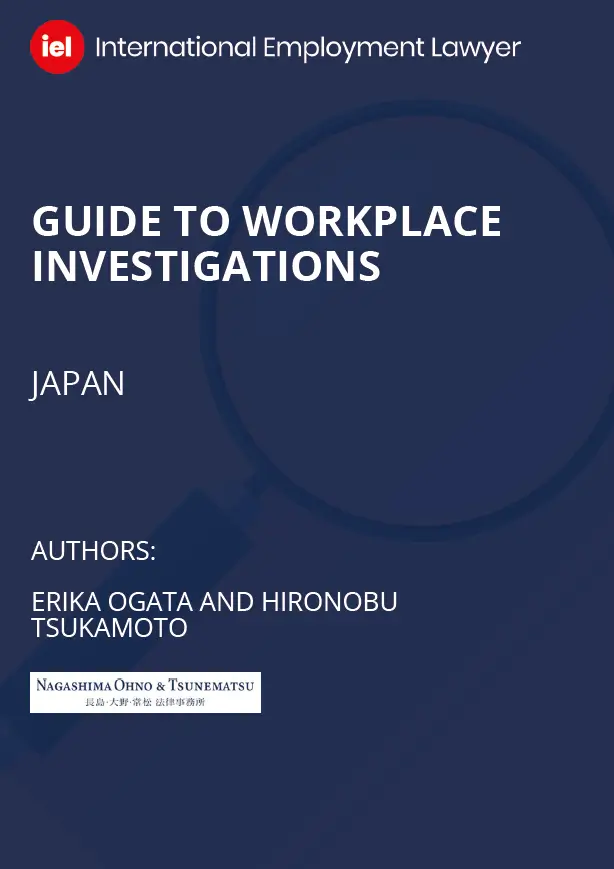

(January 2025)
Hironobu Tsukamoto, Eriko Ogata (Co-author)


Yothin Intaraprasong, Waritpan Titatornwattanasiri, Yanisa Wiboonthan (Co-author)
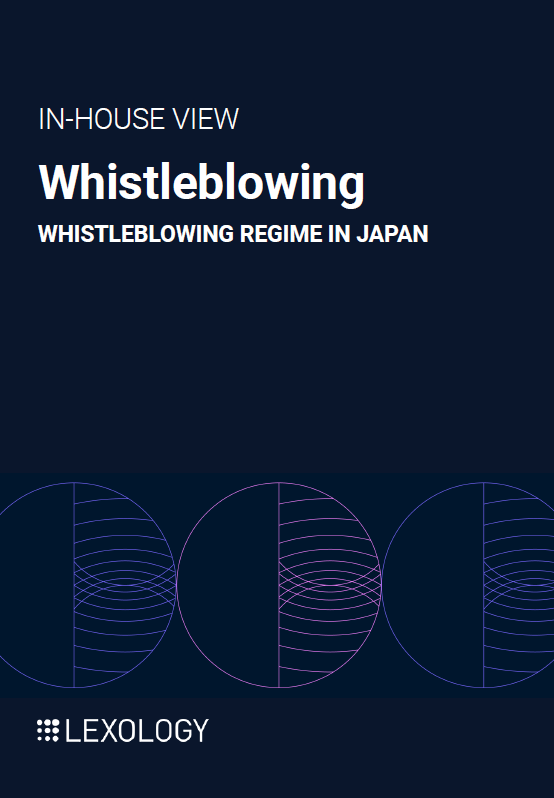

(September 2024)
Daisuke Fukamizu, Kosuke Gunji (Co-author)


Chattong Sunthorn-opas, Thunsinee Sungmongkol (Co-author)


Ario Putra Pamungkas


Long Nguyen


Rashmi Grover


Chattong Sunthorn-opas, Thunsinee Sungmongkol (Co-author)


Ario Putra Pamungkas


Rashmi Grover
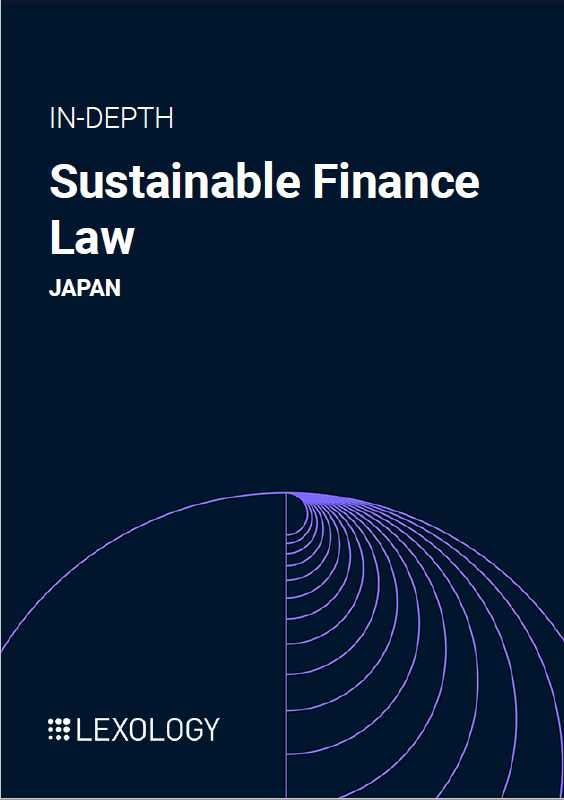

(December 2024)
Hiromi Hattori, Yuichi Miyashita (Co-author)
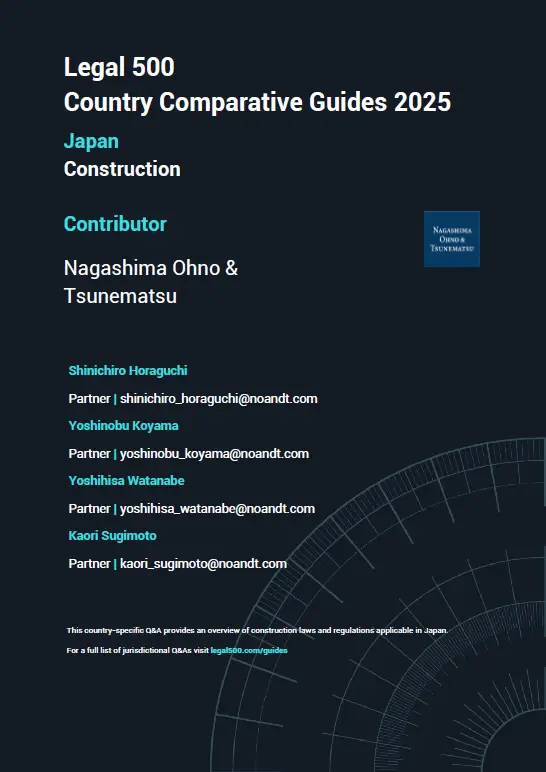

(April 2025)
Shinichiro Horaguchi, Yoshinobu Koyama, Yoshihisa Watanabe, Kaori Sugimoto (Co-author)


(December 2024)
Hiromi Hattori, Yuichi Miyashita (Co-author)


Yuan Yao Lee


Hoai Tran


(December 2024)
Hiromi Hattori, Yuichi Miyashita (Co-author)


(September 2024)
Ryosaku Kondo (Comments)
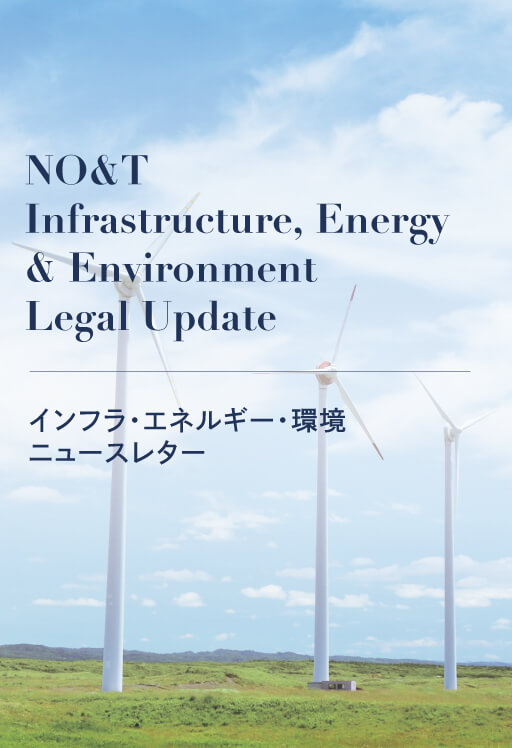

Yoshihisa Watanabe


Jiro Mikami, Eiji Miyagi, Yoshihisa Watanabe, Saori Kawai (Co-author)


Patricia O. Ko


Ngoc Hoang


Yuan Yao Lee


Chattong Sunthorn-opas, Thunsinee Sungmongkol (Co-author)
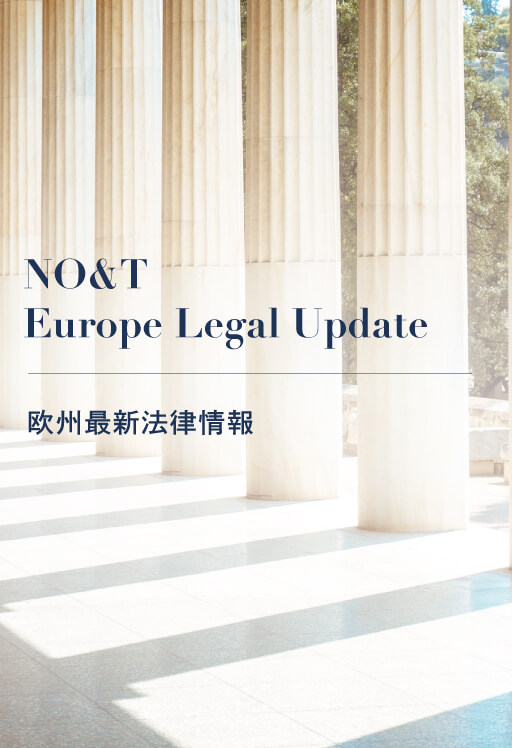

Axel Kuhlmann, Makoto Ohnuma, Shejal Verma, Sofía Terol Cháfer (Uría Menéndez) (Co-author)
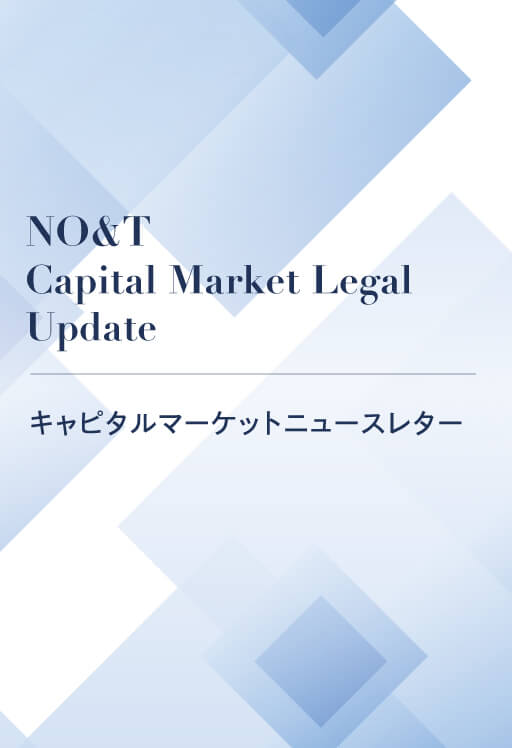

Kyohei Mizukoshi, Natsumi Tada, Sofía Terol Cháfer (Uría Menéndez) (Co-author)


(September 2024)
Ryosaku Kondo (Comments)


(May 2024)
Makoto Ohnuma